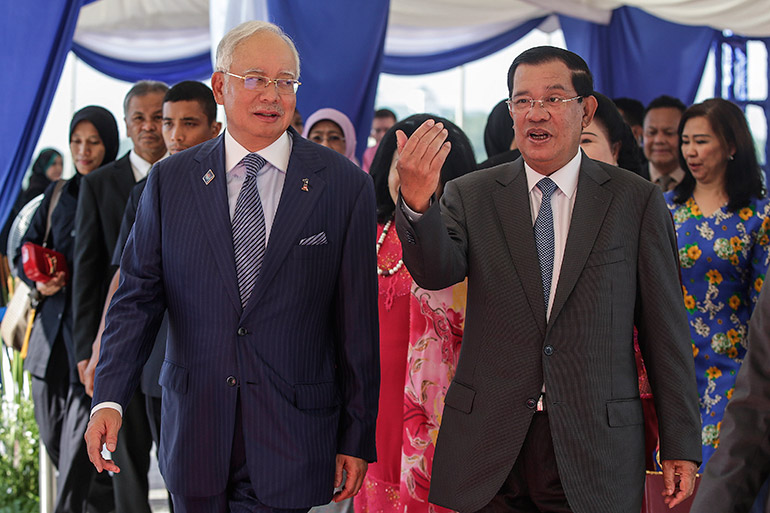After reports of Cambodian maids being subjected to slave-like conditions in Malaysia led to a ban more than five years ago, a deal has been completed to reopen the labor trade despite continued concern by rights groups

Cambodia has officially lifted its ban on citizens travelling to Malaysia to work as maids, with the first workers expected to make the journey after the end of the Muslim Hari Raya Aidilfitri festival in June, according to Malaysian officials.
At a meeting in Phnom Penh earlier this month, Malaysia’s minister of human resources, Richard Riot Jaem, and Cambodia’s labour minister, Ith Samheng, agreed on the final details of a deal signed by the two countries in December 2015 to to lift the five-year-old ban.
“During my meeting with my Cambodian counterpart, we reached an agreement to have Cambodia send domestic workers here as soon as possible. We can expect them to arrive after Hari Raya,” Riot Jaem said at the launch of a ministry guidebook for employers of foreign domestic workers on Thursday, according to The Star Online.
The minister added that Malaysia was “looking forward to the arrival of the first batch”.
Prime Minister Hun Sen initially implemented the ban in October 2011 after reports emerged of widespread abuse – including torture, starvation, theft of identity documents and unpaid wages – by both Cambodian recruitment agencies and Malaysian employers.
But while both governments have said they are confident such abuses of power will not happen again, Dy Thehoya, a program officer at labour rights group Central, remained unconvinced that any tangible progress had been made.
“We have no confidence that the safety of maids is ensured because we don’t see clear mechanisms or a protection system to assure their protection from abuse,” he told Southeast Asia Globe in an email.
The Cambodian maids that will be sent at the end of June will receive vocational training, as well as Malaysian language classes before travelling to Malaysia. While such new developments were commendable, more robust mechanisms, such as the introduction of a database of all Cambodian workers in Malaysia and regular inspections of workplaces, needed to be implemented to ensure the safety of maids in Malaysia, according to Thehoya.
“Without mechanisms in place to ensure their safety, they seem to be depending on destiny/fate,” he said. “If they stayed with good-hearted family, they were secure. If they stayed with ugly-hearted family, they faced serious suffering.”
With ban lifted, Cambodian maids to arrive in Malaysia next month
After reports of Cambodian maids being subjected to slave-like conditions in Malaysia led to a ban more than five years ago, a deal has been completed to reopen the labor trade despite continued concern by rights groups Cambodia Prime Minister Hun Sen (R) and Malaysia Prime Minister Najib Razak chat after inspecting a guard of honor during Hun Sen's official arrival at the Malaysian Prime Minister's Office in Putrajaya, Malaysia, 03 June 2016. Photo: EPA/Fazry Ismail

